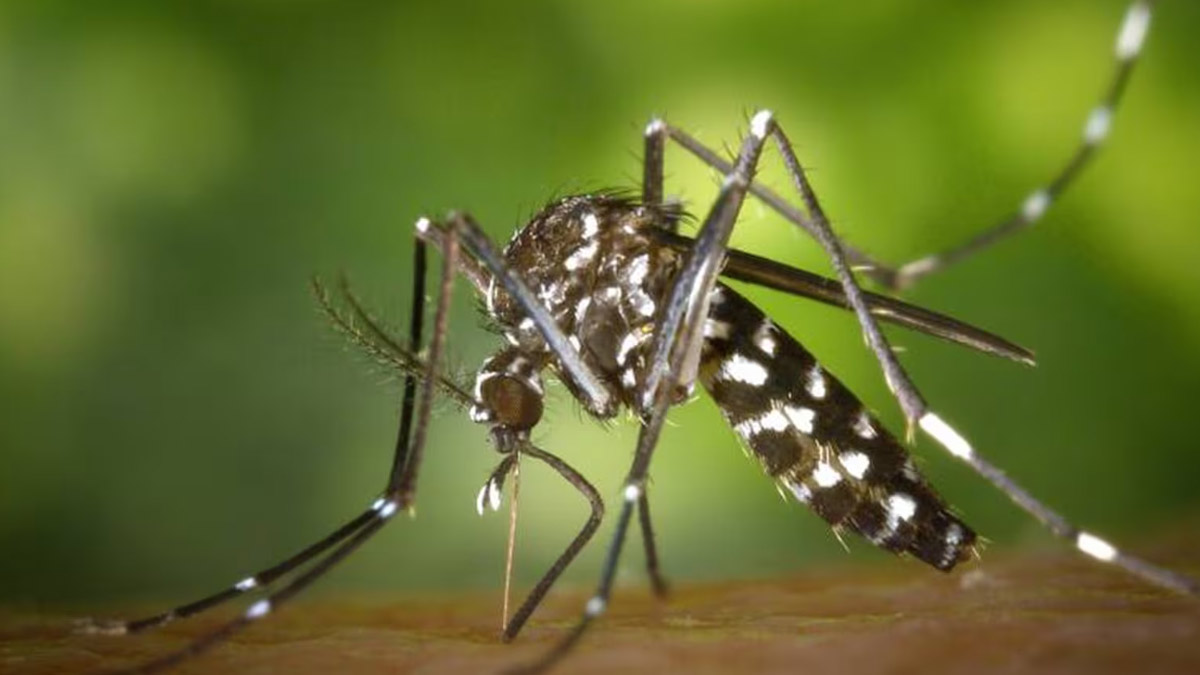
A 49-year-old Connecticut man tragically passed away last week after battling a rare mosquito-borne virus for five years. His death has brought renewed attention to the resurgence of Eastern equine encephalitis (EEE), a deadly virus that has seen an uptick in cases across the United States, particularly in the tri-state area.
Table of Content:-
A Five-Year Struggle Ends in Tragedy
Richard Pawulski, from Colchester, Connecticut, was infected with EEE while working in his garden in August 2019. What began as an ordinary day of outdoor chores turned into a life-altering event when Pawulski contracted the virus. The EEE virus, which targets the brain, left him with severe symptoms that baffled doctors at first. According to his daughter, Amellia Pawulski, Richard’s symptoms initially included debilitating migraines and vomiting bile, leaving both doctors and his family confused and alarmed.
Amellia, 18, expressed her grief and shock at how rapidly her father’s condition deteriorated. "Your life can change in the blink of an eye," she said, recalling the moment they realised how dire the situation had become. Last week, after years of fighting the virus and its devastating effects, doctors concluded that nothing more could be done for him. He passed away in hospice care at 2:30 am, surrounded by loved ones.

What Is Eastern Equine Encephalitis?
Eastern equine encephalitis, also known as EEE, is a rare but dangerous disease caused by a virus transmitted through the bite of an infected mosquito. The Centers for Disease Control and Prevention (CDC) reports that although EEE infections are relatively uncommon, the virus can be fatal in nearly 30% of cases where severe symptoms develop. Those who survive often face long-term neurological damage, including cognitive impairment, seizures, and physical disabilities.
The EEE virus primarily circulates in areas where mosquitos breed, especially in wooded or swampy regions. The virus can infect both humans and animals, including horses, from which it gets its name. While the virus is less commonly encountered than other mosquito-borne illnesses like West Nile virus, its effects are far more severe.
Also Read: Liam Payne, Star Of One Direction, Found Dead In Buenos Aires
Symptoms of EEE
Symptoms of EEE often appear four to 10 days after being bitten by an infected mosquito and can include:
- High fever
- Severe headache
- Vomiting
- Diarrhea
- Seizures
- Behavioural changes
- Drowsiness
As the virus progresses, it can lead to swelling of the brain, or encephalitis, which causes more severe and life-threatening symptoms. Without rapid medical intervention, patients may experience irreversible damage or death. Unfortunately, there is no cure or specific treatment for EEE. Doctors focus on supportive care to relieve symptoms and manage complications.
Surge in EEE Cases Across the US
Though EEE has historically been a rare disease, cases of the virus have increased in recent years. The resurgence of EEE in areas like the tri-state region—New York, New Jersey, and Connecticut—has caused concern among public health officials. Warmer temperatures and changing weather patterns, which extend mosquito breeding seasons, are suspected contributors to the rise in mosquito-borne diseases, including EEE.
The spike in cases has prompted health authorities to urge residents, particularly those in areas with heavy mosquito populations, to take precautions. As there are no vaccines or treatments for EEE, prevention is the best defence against the virus.
Also Read: Dopamine Fasting: Is This Trending Wellness Craze Worth the Hype?
Protecting Yourself From Mosquito Bites
Given the seriousness of EEE, individuals living in or visiting areas where the virus is present should take steps to minimise mosquito exposure. The CDC recommends the following precautions:
- Use insect repellent: Apply EPA-registered mosquito repellents containing ingredients such as DEET or picaridin.
- Wear protective clothing: Long sleeves, pants, and socks can help shield skin from mosquito bites, especially during peak mosquito activity in the early morning and evening.
- Limit outdoor activities: Avoid spending time outdoors during dawn and dusk when mosquitoes are most active.
- Eliminate standing water: Mosquitoes breed in stagnant water, so regularly empty water from containers like flowerpots, birdbaths, and gutters to reduce breeding grounds.
Looking Ahead
The recent uptick in EEE cases and the tragic death of Richard Pawulski underscore the importance of awareness and prevention. While EEE remains a rare condition, its potentially devastating effects make it a public health concern that should not be ignored. As mosquito populations grow and diseases like EEE become more prevalent, individuals must stay vigilant in protecting themselves and their loved ones from this dangerous virus. For now, experts continue to monitor the rise in mosquito-borne diseases, offering hope that ongoing research will lead to better ways of managing and preventing these infections in the future.
Also watch this video
Read Next
Radhika Apte and Husband Benedict Taylor Expecting First Child: Actress Debuts Radiant Baby Bump!
How we keep this article up to date:
We work with experts and keep a close eye on the latest in health and wellness. Whenever there is a new research or helpful information, we update our articles with accurate and useful advice.
Current Version